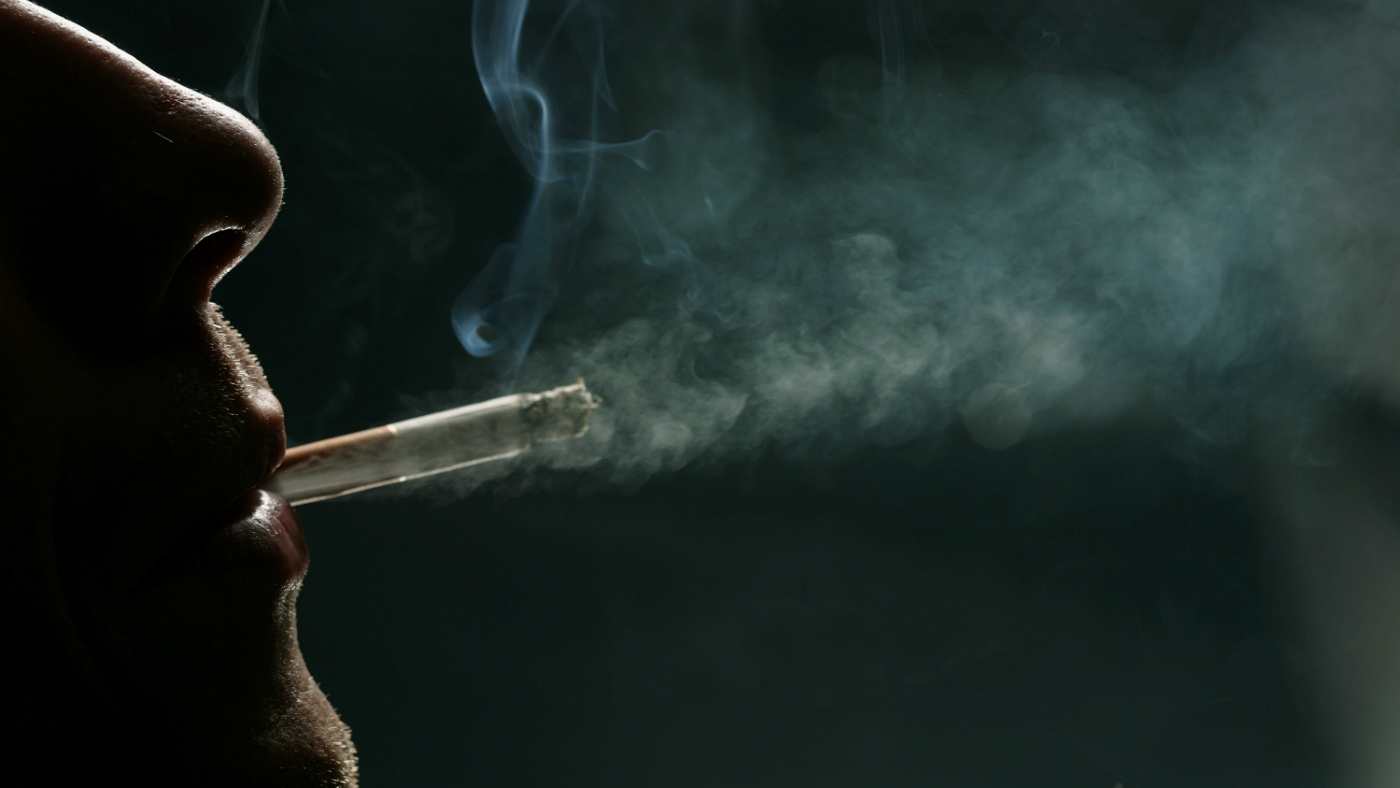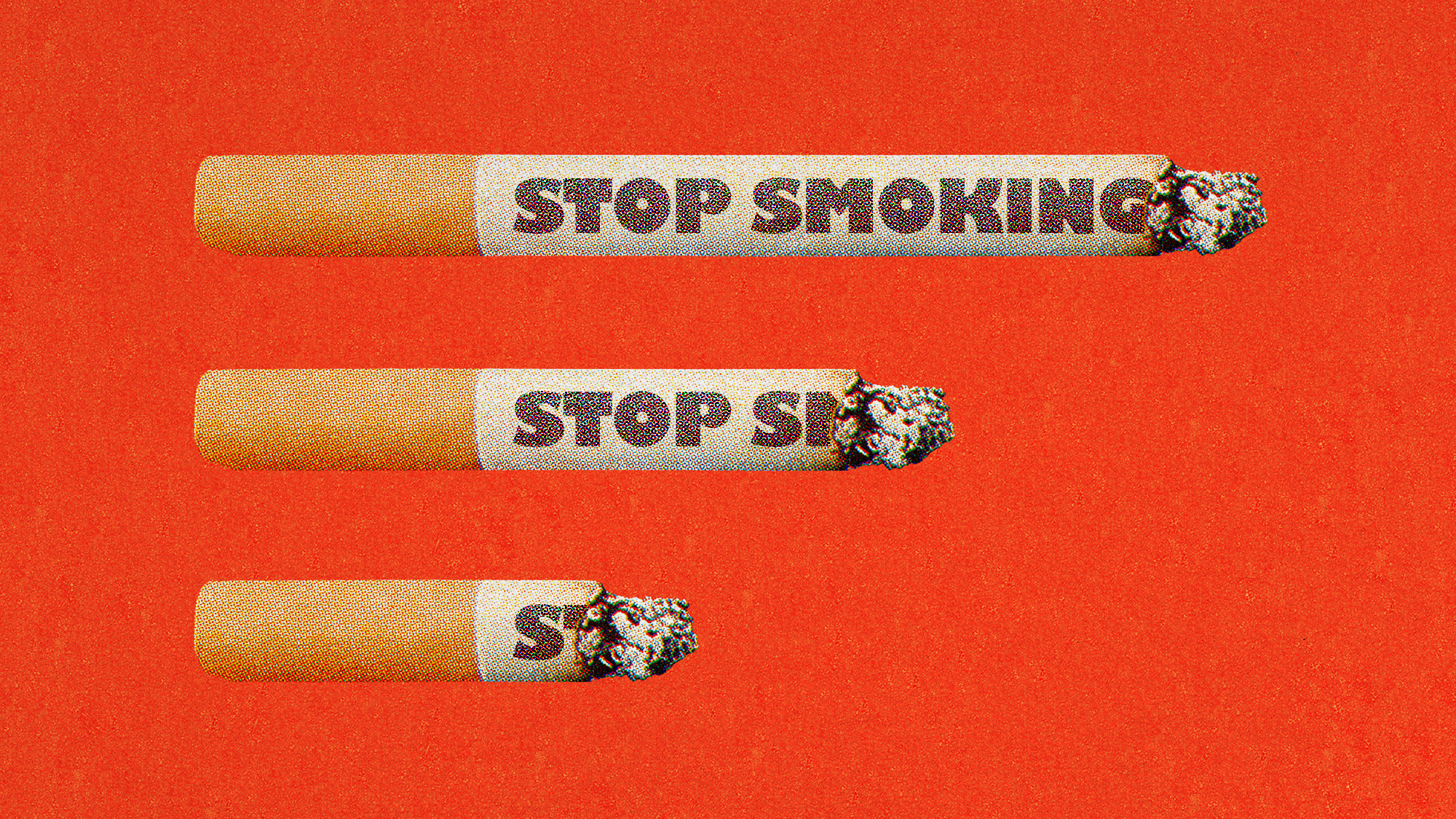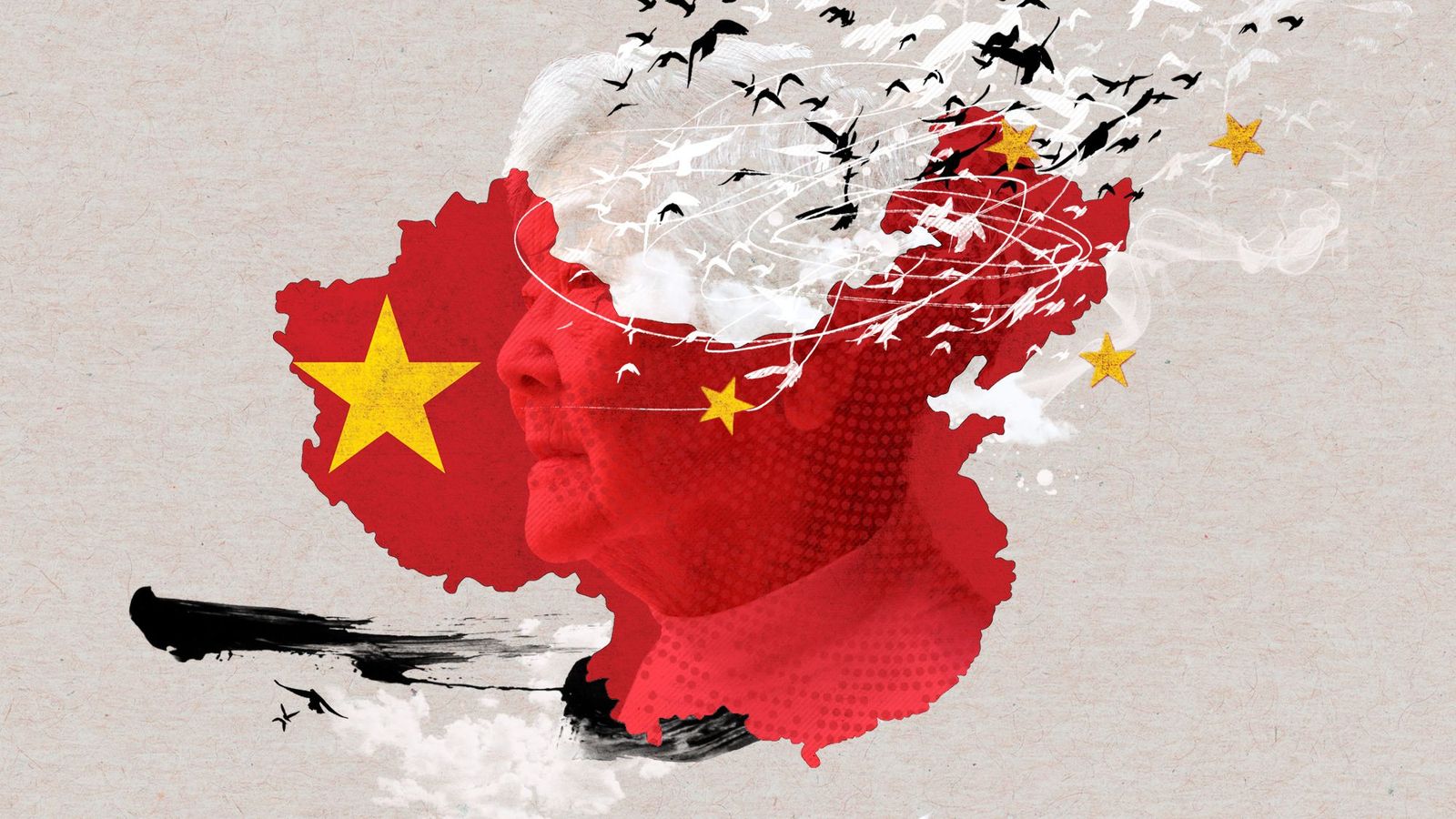Does nicotine protect against coronavirus?
New study suggests smoking may cut risk of infection - but does not advise taking up the fatal habit

A free daily email with the biggest news stories of the day – and the best features from TheWeek.com
You are now subscribed
Your newsletter sign-up was successful
Coronavirus patients and front-line medics are to be given nicotine patches in clinical trials to see whether smoking may cut the risk of contracting the Covid-19 coronavirus.
The move comes after a newly published French study found that the proportion of smokers who tested positive for the infection was much lower than that in the general population.
The trials are awaiting the approval of France’s health authorities, The Guardian reports.
The Week
Escape your echo chamber. Get the facts behind the news, plus analysis from multiple perspectives.

Sign up for The Week's Free Newsletters
From our morning news briefing to a weekly Good News Newsletter, get the best of The Week delivered directly to your inbox.
From our morning news briefing to a weekly Good News Newsletter, get the best of The Week delivered directly to your inbox.
What does the study say?
Researchers from the Pitie-Salpetriere Hospital and Universite Pierre et Marie Curie in Paris questioned 480 patients confirmed to have the new coronavirus, of whom 350 were hospitalised, while the rest were allowed home.
The analysis found that of those admitted to hospital, 4.4% were regular smokers, with a median age of 65. Among those sent home, 5.3% smoked, with a median age of 44.
By comparison, among the general population, smokers make up around 40% of people between the ages of 44 and 53, and around 11% of those aged 65 to 75, according to estimates by the French health authority.
A free daily email with the biggest news stories of the day – and the best features from TheWeek.com
And figures from hospitals across the French capital show that of 11,000 patients of all ages admitted to hospital with Covid-19, 8.5% were smokers. The total number of smokers in France is estimated at around 25.4%.
The study authors write: “Our cross-sectional study strongly suggests that those who smoke every day are much less likely to develop a symptomatic or severe infection with Sars-CoV-2 compared with the general population.
“The effect is significant. It divides the risk by five for ambulatory patients and by four for those admitted to hospital. We rarely see this in medicine.”
Neurobiologist Jean-Pierre Changeux, who reviewed the study, has suggested that nicotine in cigarettes may hinder the virus from entering the body’s cells.
Experts say that the chemical may also “lessen the overreaction of the body’s immune system that has been found in the most severe cases of Covid-19 infection”, The Guardian adds.
Has this link been made before?
Yes, other studies have also revealed a lower rate of coronavirus infection among smokers.
For example, a study published in the New England Journal of Medicine in February found that smokers accounted for 12.6% of a sample of 1,100 Covid-19 patients in China, despite making up around 28% of the general population.
However, some experts believe that cigarettes can increase the risk of contracting the disease.
The US Food and Drug Administration (FDA) told Bloomberg this week that “people who smoke cigarettes may be at increased risk of infection with the virus that causes Covid-19, and may have worse outcomes from Covid-19”.
–––––––––––––––––––––––––––––––For a round-up of the most important stories from around the world - and a concise, refreshing and balanced take on the week’s news agenda - try The Week magazine. Start your trial subscription today –––––––––––––––––––––––––––––––
‘Fatal health risks’
Although the Paris researchers’ findings suggest that nicotine may help fend off the coronavirus, “the team says it is not advocating that anyone start smoking, because cigarettes have fatal health risks”, the Daily Mail reports.
As The Guardian notes, smoking is estimated to kill around 50% of people who take up the habit.
The newspaper also points out that the French experts emphasise that “while nicotine may protect those from the virus”, smokers who do become infected often develop more serious symptoms because of the damaging effects of tobacco smoke on their lungs.
-
 The environmental cost of GLP-1s
The environmental cost of GLP-1sThe explainer Producing the drugs is a dirty process
-
 Greenland’s capital becomes ground zero for the country’s diplomatic straits
Greenland’s capital becomes ground zero for the country’s diplomatic straitsIN THE SPOTLIGHT A flurry of new consular activity in Nuuk shows how important Greenland has become to Europeans’ anxiety about American imperialism
-
 ‘This is something that happens all too often’
‘This is something that happens all too often’Instant Opinion Opinion, comment and editorials of the day
-
 A Nipah virus outbreak in India has brought back Covid-era surveillance
A Nipah virus outbreak in India has brought back Covid-era surveillanceUnder the radar The disease can spread through animals and humans
-
 Covid-19 mRNA vaccines could help fight cancer
Covid-19 mRNA vaccines could help fight cancerUnder the radar They boost the immune system
-
 The new Stratus Covid strain – and why it’s on the rise
The new Stratus Covid strain – and why it’s on the riseThe Explainer ‘No evidence’ new variant is more dangerous or that vaccines won’t work against it, say UK health experts
-
 RFK Jr. vaccine panel advises restricting MMRV shot
RFK Jr. vaccine panel advises restricting MMRV shotSpeed Read The committee voted to restrict access to a childhood vaccine against chickenpox
-
 Quit-smoking ads are being put out
Quit-smoking ads are being put outUnder the radar The dissolution of a government-funded campaign could lead to more smokers in the future
-
 RFK Jr. scraps Covid shots for pregnant women, kids
RFK Jr. scraps Covid shots for pregnant women, kidsSpeed Read The Health Secretary announced a policy change without informing CDC officials
-
 China's soaring dementia rates
China's soaring dementia ratesUnder The Radar Government launches action plan after cases in China increase 50% faster than global average
-
 New FDA chiefs limit Covid-19 shots to elderly, sick
New FDA chiefs limit Covid-19 shots to elderly, sickspeed read The FDA set stricter approval standards for booster shots